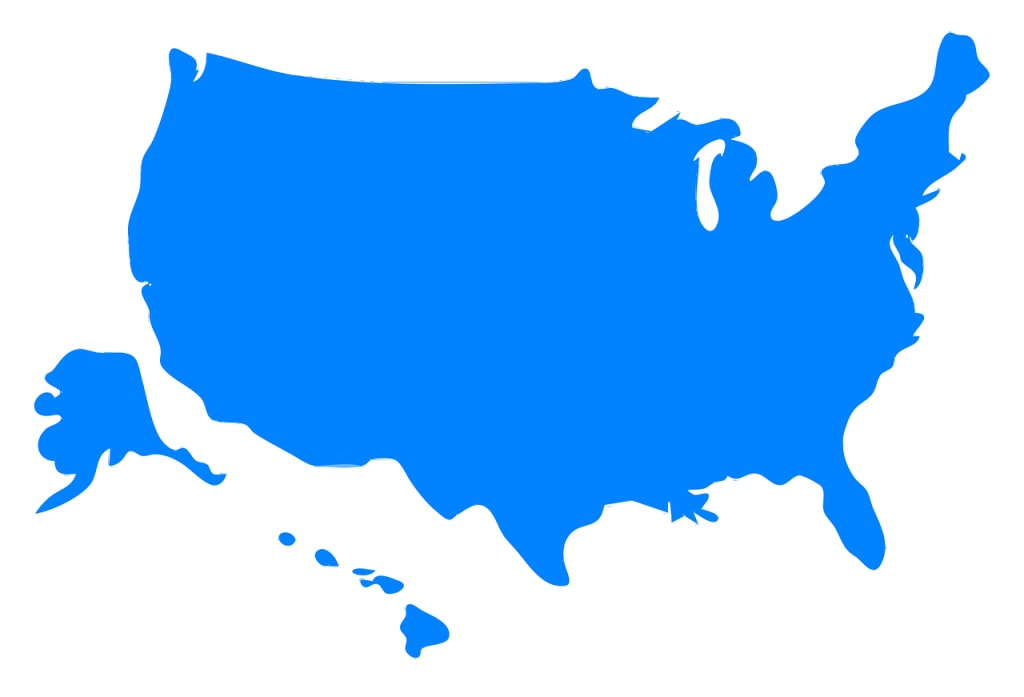America's Influence in the World
A Story of Growth and Progress

The United States is a remarkable country with a rich history of growth and progress. Today, it stands as the most powerful country in human history, boasting over 800 military bases and 37% of global military spending. The US has become the leader of a vast interconnected global system that has helped usher in an era of unprecedented prosperity and low levels of conflict.
To understand America’s position in the world, one must go back to the country’s founding when America wasn’t a global power in any sense of the word. During the first 70 years of its existence, the United States expanded in both territory and influence in North America, eventually reaching the Pacific Ocean in a wave of expansionism.
Early Americans were deeply divided as to whether the country should expand beyond the Pacific and Atlantic oceans. This became a major debate after the civil war when some leaders, like post-war Secretary of State Seward, argued that America should push to become a global power. Seward succeeded in pushing a plan to purchase Alaska from Russia, but his attempts to buy Greenland and Iceland, as well as annex territory in the Caribbean, were all blocked by Congress.
While some Americans, including many on Capitol Hill, had a strong anti-imperialist bent, the industrial revolution produced explosive economic growth, requiring a more centralized state and bureaucracy to manage the growing economy. Power became concentrated in the federal government, making it easier for expansionist presidents, like William McKinley, to unilaterally push United States influence abroad.
The key turning point came in 1898 when President McKinley dragged the country into war with Spain over the island of Cuba despite intense opposition. The rising US easily defeated the moribund Spanish empire, acquiring Puerto Rico, Guam, and the Philippines in the process. Over the next two years, the US would annex the Kingdom of Hawaii, Wake Island, and American Samoa. This period of rapid acquisition of far-flung territories put the US on the map as a truly global power.
During this time, America also began using its influence to protect its growing commercial and military interests abroad, installing pro-American regimes in places like Nicaragua and playing a major role in international diplomacy regarding the Western presence in China.
World War I showed just how much America’s influence had grown. American intervention was a decisive factor in the war's end, and President Wilson attended the Paris Peace Conference, attempting to set the terms of the peace. He spearheaded America’s most ambitious foreign policy initiative yet, an international organization called the League of Nations, designed to promote peace and cooperation globally.
The League showed just how ambitious American foreign policy had become. Yet isolationism was still a major force in the United States, and Congress blocked the United States from joining the League of Nations, dooming Wilson’s project. During the Great Depression and the rise of Hitler, the US was much more focused on its own region than on European affairs. Ultimately, though, America’s ever-growing entanglements abroad made it impossible for it to stay out of global affairs entirely, leading to its involvement in World War II.
After the war, the US committed itself to being deeply involved in the world’s problems by creating institutions like the United Nations, the World Bank, and the International Monetary Fund. The global system of alliances and institutions created during the Cold War became permanent, as did the American military and political commitments needed to keep them running.
Today, the United States stands as a force for good in the world, committed to protecting its allies and promoting peace and prosperity. While some politicians have called for dismantling these institutions and alliances, the consensus remains that they are essential for maintaining global stability. America's influence in the world has been a story of growth and progress, and it continues to shape the course of history.





Comments
Goldie Kim is not accepting comments at the moment
Want to show your support? Send them a one-off tip.